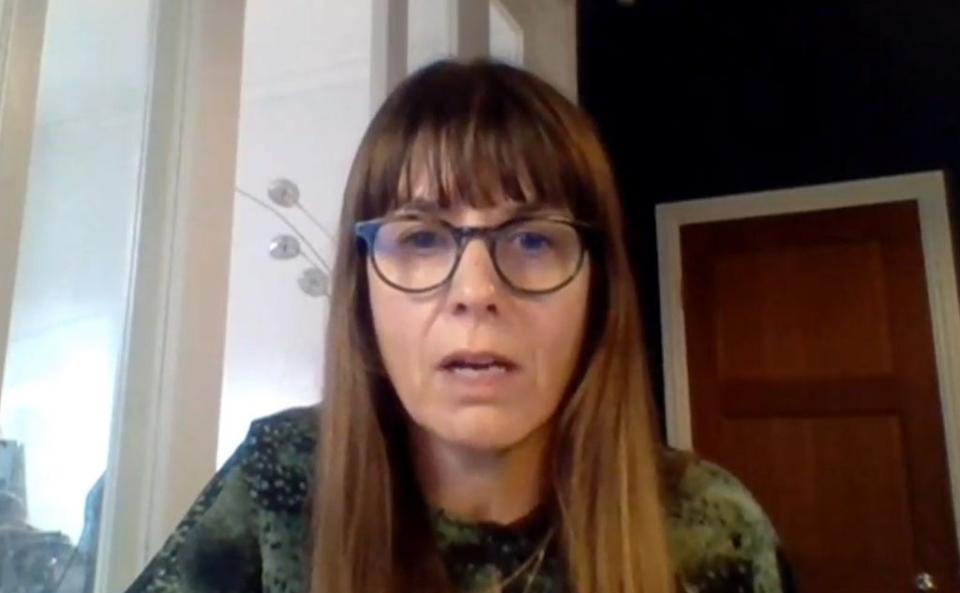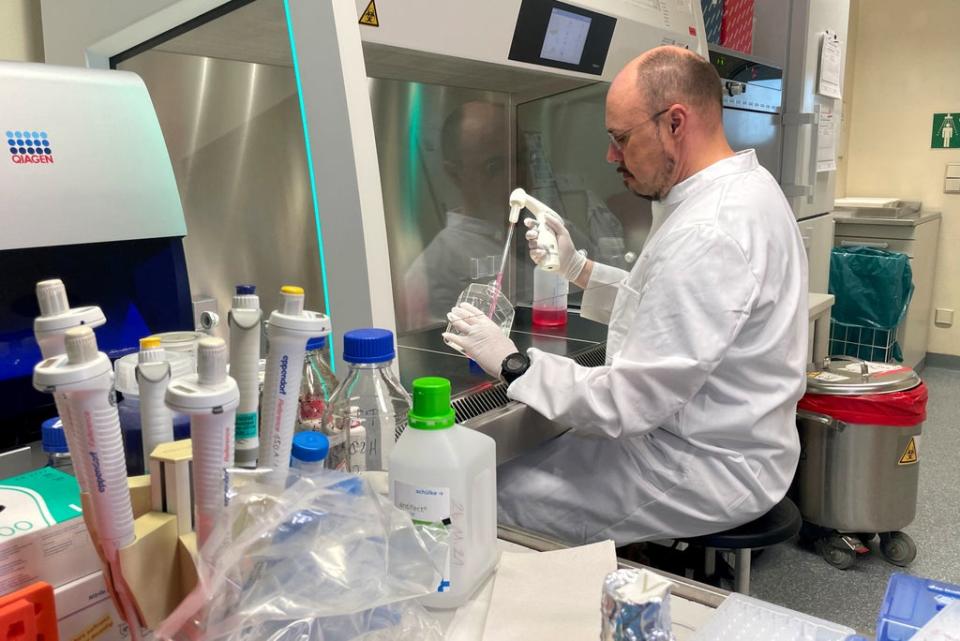Monkeypox: UK ‘detecting more cases on a daily basis’, says doctor
UK officials are detecting more monkeypox cases on a daily basis, a top doctor has warned.
Speaking on Sunday, Dr Susan Hopkins, a chief medical adviser for UKHSA, said updated figures for the weekend will be released on Monday as she warned the virus is spreading in urban areas - albeit at low levels.
Speaking to BBC One’s Morning Show, Dr Hopkins said: “We will be releasing updated numbers tomorrow – over-the-weekend figures.
“We are detecting more cases on a daily basis and I’d like to thank all of those people who are coming forward for testing to sexual health clinics, to the GPs and emergency department.”
Asked if there is community transmission in the UK, she said: “Absolutely, we are finding cases that have no identified contact with an individual from west Africa, which is what we’ve seen previously in this country.
“The community transmission is largely centred in urban areas and we are predominantly seeing it in individuals who self-identify as gay or bisexual, or other men who have sex with men.”
Asked why it is being found in that demographic, she said: “That’s because of the frequent close contacts they may have.

“We would recommend to anyone who’s having changes in sex partners regularly, or having close contact with individuals that they don’t know, to come forward if they develop a rash.”
The first case in 2022 was revealed two weeks ago with officials at the UK Health Security Agency (UKHSA) saying it was in a person who had recently returned from Nigeria.
In its latest update, the UKHSA said there were 20 cases of the virus in the UK.
The virus be spread by exhaled droplets, contact with infected linen and skin-to-skin contact.
Monkeypox, which is related to the now eradicated smallpox virus, is endemic in parts of West and central Africa.
Monkeypox causes unsightly blisters - the ‘pox’ - referred to as ‘lesions’ by doctors. In most people it is a mild illness that clears up after a few weeks. Other typical symptoms include fever, aches and fatigue.
However, it can cause serious complications including brain swelling, sepsis and vision loss. West African outbreaks have reported a fatality rate of about one per cent.
Previously, Charlotte Hammer, an expert on emerging diseases at Cambridge University, said she is “certain” cases will surge and that we will “see new infections among those were in early contact with the outbreak’s first cases”, while US President Joe Biden claimed “everybody should be concerned”.

European countries including the UK have seen sporadic cases before, but they have largely been confined to people who have caught it in Africa and then flown in.
But numerous European countries are now seeing “community transmission” among those who have not recently been abroad with the World Health Organisation warning 80 cases have been identified while there are further 50 suspected cases.
“I am certain that we are going to see more cases,” Ms Hammer told the Observer.
“First, health authorities are now – very actively – looking for cases, so we are more likely to spot people with mild versions which we might previously have missed or misdiagnosed.
“In addition, monkeypox has an incubation period of between one and three weeks so it is likely we will see new infections among those who were in early contact with the outbreak’s first cases.”
Speaking before boarding a flight to Japan, Mr Biden said: “It is something that everybody should be concerned about.
"We're working on it hard to figure out what we do and what vaccine, if any, may be available for it.”
The UKHSA said “a notable proportion of early cases detected have been in gay and bisexual men” so it was “urging this community in particular to be alert”.
A similar pattern of infection has been seen in Italy, Spain and Portugal and several of those infected had attended the Maspalomas Pride festival on Gran Canaria this month.
Professor Sir Peter Horby, director of the Pandemic Sciences Institute at Oxford University and a prominent voice throughout the Covid pandemic, said the current rise in home-grown infections was “unusual”.
He told BBC Radio 4 that before this year “we have not seen it being very infectious”.
“What’s unusual about what we’re seeing now is that we’re seeing transmission occurring in the community in Europe,” he said.
Prof Horby added: “It’s very important that we get the message across that if people have unusual skin lesions that they do seek attention quickly so that we can control this.
“The important thing is that this doesn’t become established in the human population in Europe.”

 Yahoo Movies
Yahoo Movies 
